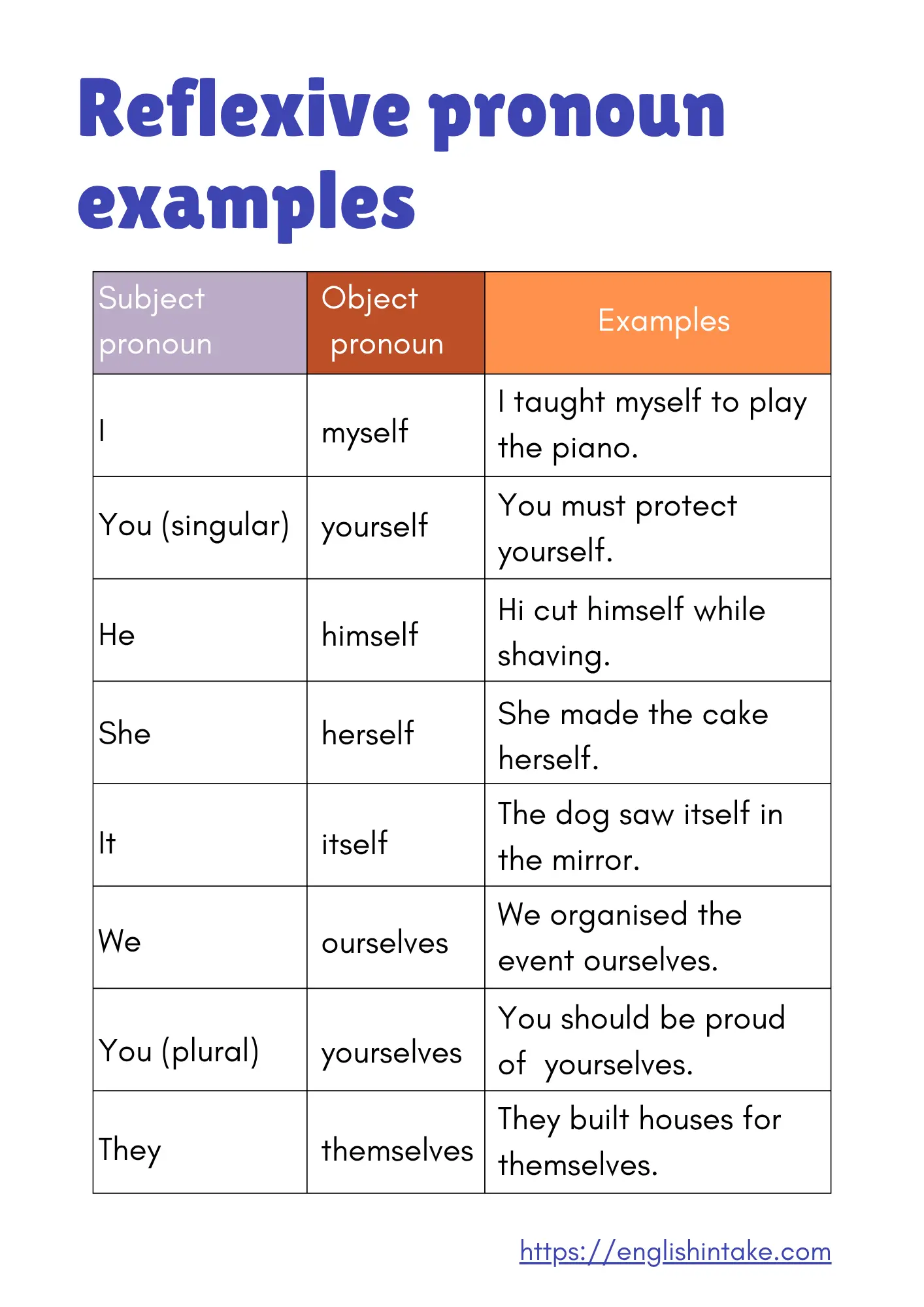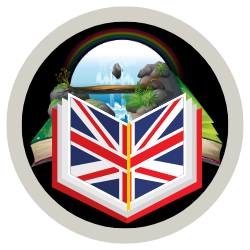What are reflexive pronouns?
Reflexive pronouns are myself, yourself, herself, himself, itself, ourselves, yourselves, and themselves. We use them when the person doing an action and the person receiving the action are the same. For example, when you do something without the help of somebody else.
Examples
| Subjects | Reflexive pronouns | Examples |
|---|---|---|
| I | myself | I made a sandwitch myself yesterday. |
| You | yourself | Did you take the photo yourself. |
| He | himself | He cut himself while shaving. |
| She | herself | She did everything by herself. |
| It | itself | I think my computer is broken. Sometimes, it turns off by itself. |
| We | ourselves | We cooked dinner for ourselves. |
| You | yourselves | You should try to solve the puzzle yourselves. |
| They | themselves | The dogs entertained themselves with toys. |
- I made this cake myself.
- She prepared the entire banquet herself.
- We built this company ourselves.
- He painted the portrait himself.
- You should be proud of yourself.
- They organised the event themselves.
- He fixed the car himself.
- She learned to play the piano herself.
- I cooked dinner myself last night.
- You solved the problem yourself, didn't you?
- They asked themselves what went wrong.
We can add by before reflexive pronouns to emphasise that an action is being done independently or alone.
- She lives by herself.
- Did you do the homework by yourself?
- I don’t think he wrote the book by himself?
- She travelled around the world by herself.
- Can you complete the project by yourself?
- He prefers to dine by himself.
- Do you enjoy going to the cinema by yourself?
- She painted the entire house by herself.
- He learned these skills by himself.
- Did they build the company by themselves?
- Can you handle this situation by yourself?
Intensive pronouns vs reflexive pronouns
Myself, yourself, himself, herself, itself, ourselves, yourselves, and themselves are also called intensive pronouns. However, intensive pronouns are used to emphasise the subject of the sentence. An intensive pronoun can be removed without changing the meaning of the sentence, whereas a reflexive pronoun cannot.
| Subject | Reflexive pronoun | Intensive pronoun |
|---|---|---|
| I | I went there myself. | I myself went there. |
| You | You were there yourself as well. | You yourself were there as well. |
| He | He did the hard work himself. | He himself did all the hard work. |
| She | Did she write the letter herself? | Did she herself write the letter? |
| It | The cat injured itself while trying to climb the tall fence. | The cat itself got injured while trying to climb the tall fence. |
| We | We couldn’t do everything ourselves. | We ourselves couldn’t do everything. |
| You | Don’t blame yourselves for what happened. | You yourselves are to blame for what happened. |
| They | The thieves surrendered themselves to the police. | The thieves themselves surrendered to the police. |

Share this content on social media

